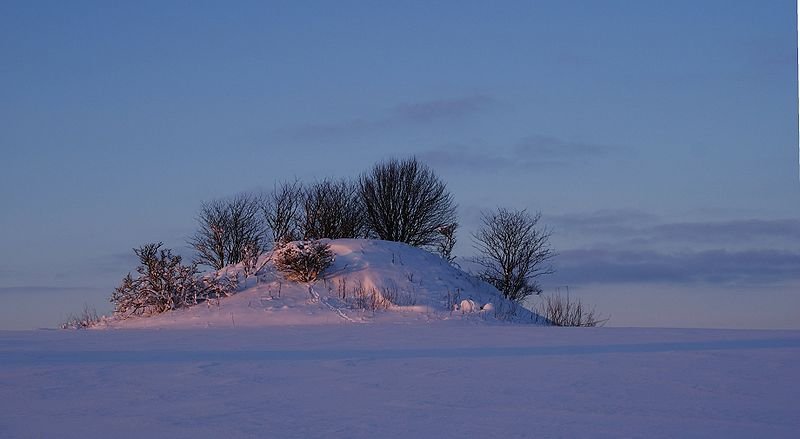 The tumulus - grave mound - Tinghøjen, on the road between the towns opf Hammershøj and Kvorning in Denmark
The tumulus - grave mound - Tinghøjen, on the road between the towns opf Hammershøj and Kvorning in DenmarkSource: https://commons.wikimedia.org/wiki/File:Tingh%C3%B8j_Hammersh%C3%B8j_Kvorning_2010-01-08_edit_filtered.jpg
Author: Kim Hansen
 Denmark is a small country in northern Europe. It comprises three main portions: Jutland, Funen and Zealand. Jutland is a peninsula joined to mainland Europe, where it shares a border with Germany. Funen (Fyn in Danish) and Zealand are the two main islands that also form part of Denmark. Jutland comprises bulk of the land area of Denmark. Funen has the smallest area. It is also the homeland of famous Danish author Hans Christian Andersen. Zealand is where the capital, Copenhagen, is located. It is a country with lots of lakes, sand dunes and white cliffs.
Denmark is a small country in northern Europe. It comprises three main portions: Jutland, Funen and Zealand. Jutland is a peninsula joined to mainland Europe, where it shares a border with Germany. Funen (Fyn in Danish) and Zealand are the two main islands that also form part of Denmark. Jutland comprises bulk of the land area of Denmark. Funen has the smallest area. It is also the homeland of famous Danish author Hans Christian Andersen. Zealand is where the capital, Copenhagen, is located. It is a country with lots of lakes, sand dunes and white cliffs.Denmark covers an area of 43,098 sq km and has a population of 5.5 million people. The national language, Danish, is closely related to Swedish and Norwegian. The conversion of the Danes from Catholic to the Lutheran faith began around 1525, due mainly to the work of Hans Tausen, a former monk of the Order of St John's Hospitalers, who brought Martin Luther's reformation message. The country officially became Lutheran in 1536. Today 82% of the people of Denmark belong to the Lutheran church. Today some 9.5% of the population are immigrants or descendants of recent immigrants.
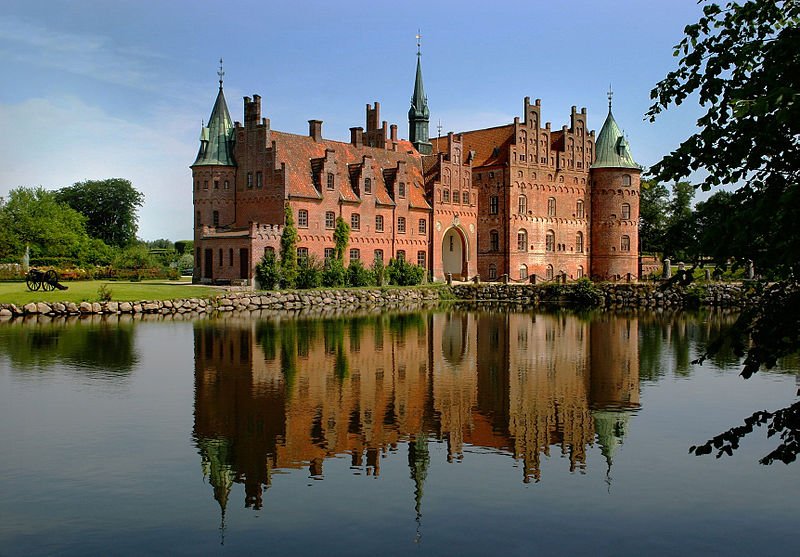 Egeskov Castle, Denmark
Egeskov Castle, DenmarkSource: https://commons.wikimedia.org/wiki/File:Egeskov_Slot_spejling_Edit_2.jpg
Author: Malene Thyssen

Along with Sweden, Norway and Finland, Denmark is one of the Scandinavian countries. A constitutional monarchy and parliamentary democracy, Denmark has a mixed market capitalist economy and a large welfare state.
Denmark is the "lowest country" in Europe. The tallest natural point in the country is just 171 meters above sea level. Even the Søsterhøj Transmission Tower, with its tip at 315 meters above sea level, is higher any than other spot in the country.
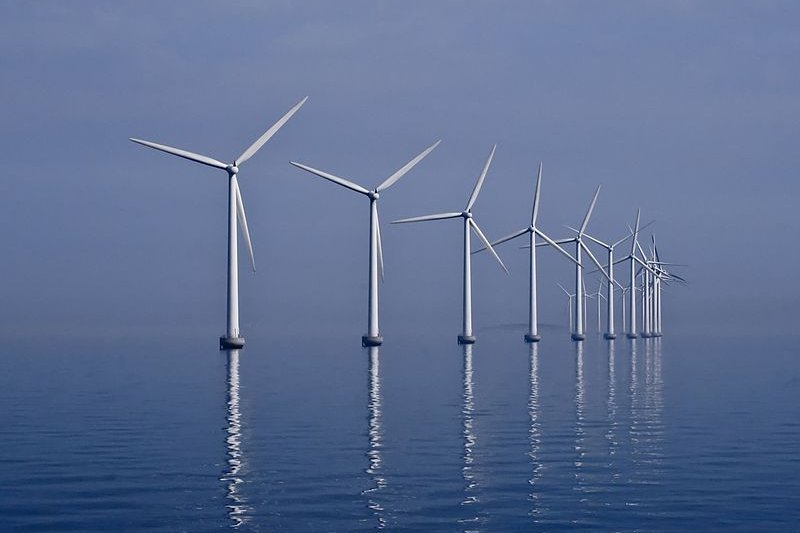 Middelgrunden offshore wind farm, Denmark
Middelgrunden offshore wind farm, DenmarkSource: https://commons.wikimedia.org/wiki/File:Middelgrunden_wind_farm_2009-07-01_edit_filtered.jpg
Author: Kim Hansen

Fast Facts about Denmark
- Official Name: Kingdom of Denmark
- Capital: Copenhagen (503,669)
- Population of Denmark: 5,432,300 (2006 est.)
- Currency: Danish Krone
- Languages spoken: Danish, English, others
- Religions: Evangelical Lutheran (95%), other Christian faiths (3%), Islam (2%)
- Size: 43,094 sq km (16,638 sq miles)
Planning your visit to Denmark
Denmark is a member of the Schengen Agreement, meaning people from EU and EFTA (Iceland, Liechtenstein, Norway and Switzerland) only need to bring along their ID card to enter the country. As of January 2010, the nationals of Andorra, Antigua and Barbuda, Argentina, Australia, Bahamas, Barbados, Bermuda, Brazil, Brunei, Canada, Chile, Costa Rica, Croatia, El Salvador, Guatemala, Honduras, Hong Kong, Israel, Japan, Macau, Macedonia, Malaysia, Mauritius, Mexico, Monaco, Montenegro, New Zealand, Nicaragua, Panama, Paraguay, Saint Kitts and Nevis, San Marino, Serbia, Seychelles, Singapore, South Korea, United States, Uruguay, Vatican City and Venezuela do not need a visa to enter Denmark.By Plane
The main international gateway is Copenhagen Airport (CPH), which is also the biggest airport in Scandinavia. It is located just 8 km from Copenhagen, and can be easily reached from Malmö in Sweden. If you arrive here, you can take a train to the Copenhagen railway station for 27 Danish kroner.
Budget travelers can fly Ryanair to Aarhus Airport or Wizzair to Malmö-Sturup Airport. If you are going to Copenhagen, then the Malmö-Sturup Airport will be much closer, as it is just 61 km away.
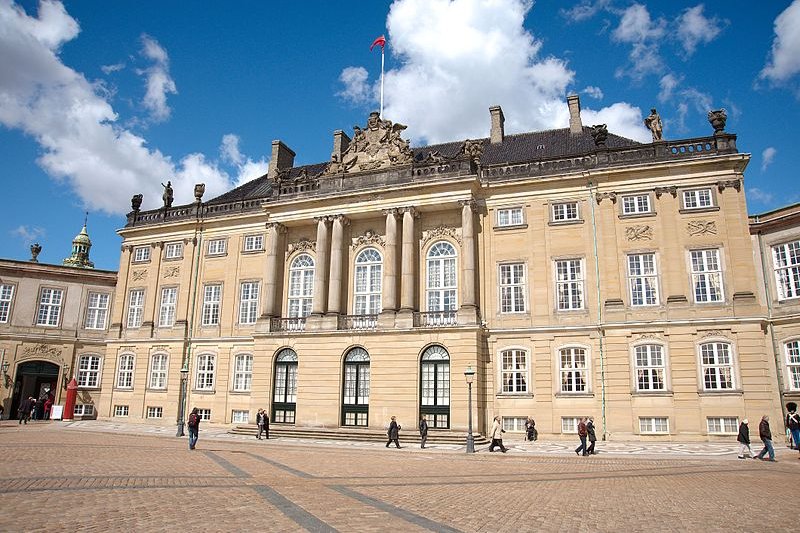 Amalienborg Palace, Denmark
Amalienborg Palace, DenmarkSource: https://commons.wikimedia.org/wiki/File:Amalienborg_slott_14.jpg
Author: Trond Arild Ydersbond

By Train
There are train services to Copenhagen from different parts of Europe. It takes just 20 minutes to reach the city from Malmö in Sweden, and 4.5 hours from Hamburg.
Preparing Money for your trip to Denmark
The currency used in Denmark is the Danish Krone (DKK).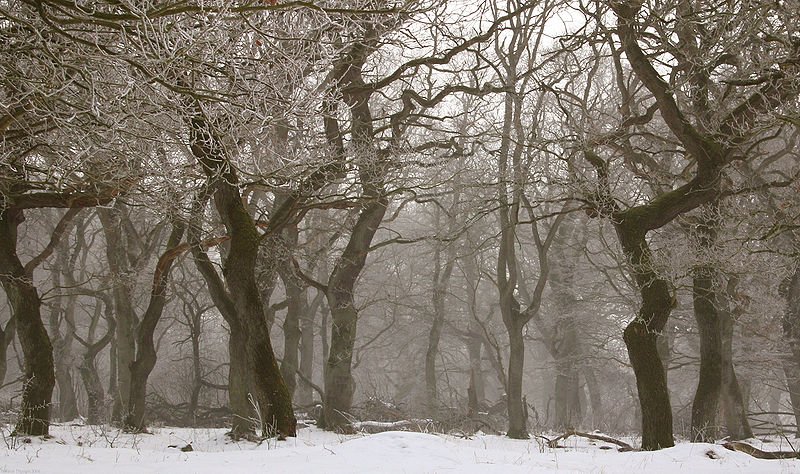 An oak forest in Denmark
An oak forest in DenmarkSource: https://commons.wikimedia.org/wiki/File:Langaa_egeskov_rimfrost.jpg
Author: Malene Thyssen

Planning your travel within Denmark
The train operator in Denmark is the Danish State Rail, or DSB. If you intend to explore Denmark extensively, you might want to consider getting the Denmark Rail Pass, which allows you to travel either 3 days (€67) or 7 days (€105) within a one-month period.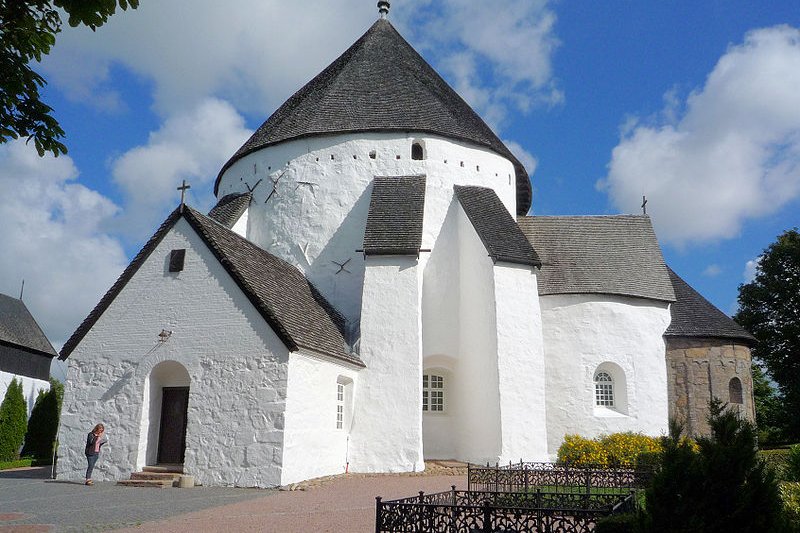 Østerlars Church, Bornholm, Denmark
Østerlars Church, Bornholm, DenmarkSource: https://en.wikipedia.org/wiki/File:Oesterlars_Kirke_Bornholm_Denmark.jpg
Author: Per Trangbæk

Principal Cities of Denmark
- Copenhagen (København)
The capital and largest city in Denmark. - Esbjerg
Main Danish seaport on the west coast of Jutland peninsula, population 115,000. - Helsingør
Town at the narrowest part of the Øresund Strait. Population 46,000 - Herning
Town in the centre of Jutland, home of the largest exhibition centre in Scandinavia. Population 46,000 - Nykøbing Falster
Town in southeast Denmark straddling the islands of Lolland and Falster. Population 16,000. - Odense
Third largest city in Denmark and main city on the island of Funen. - Rønne
Town on the island of Bornholm in the Baltic Sea. Population 14,000. - Roskilde
First capital of Denmark until 1417 and the first city in Zealand with a cathedral. Population: 48,000. - Sønderborg
Town in the southern part of Denmark near Germany, population 27,000. - Aalborg
University city in North Jutland, population 123,000. - Aarhus
Second largest city in Denmark and main city on the Jutland peninsula.
World Heritage Sites in Denmark
Denmark ratified the World Heritage Convention on 25 July, 1979. As of August 2010, it has 4 World Heritage Sites, of which three are in the cultural category and one in the natural category. Denmark also has another 9 sites on the World Heritage Tentative List.-
Cultural
- Jelling Mounds, Runic Stones and Church (1994)
- Roskilde Cathedral (1995)
- Kronborg Castle (2000)
- Ilulissat Icefjord (2004)
- Amalienborg and its district (1993)
- Christiansfeld (1993)
- Church ruin at Hvalsø, episcopal residence at Gardar, and Brattahlid (A Norse/Eskimo cultural landscape) (2003)
- Aasivissuit, Arnangarnup Qoorua (Greenlandic inland and coastal hunting area) (2003)
- The International Wadden Sea (Danish-German-Dutch Wadden Sea) (2003)
- Stevns Klint (2010)
- Moler landscapes of the Liim Fiord (2010)
- The Trelleborg fortresses (2010)
- The Parforce Hunting landscape in North Zealand (2010)
Tourist destinations in Denmark
- Bornholm
Danish island on the Baltic Sea to the south of Sweden. - Grenen
The northernmost tip of Jutland - Læsø
Remote island with sand dunes and picturesque landscape. - Møn
Beautiful Danish countryside with Viking burial mounds and white cliffs. - Øresund Bridge
Longest road and rail bridge in Europe.
 Latest updates on Penang Travel Tips
Latest updates on Penang Travel Tips

Copyright © 2003-2025 Timothy Tye. All Rights Reserved.

 Go Back
Go Back